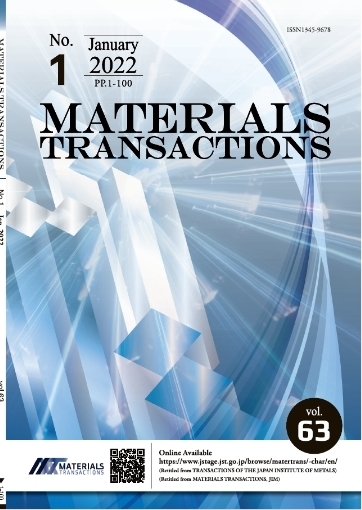The Formation and Characterization of the Primary Mg2Si Dendritic Phase in Hypereutectic Al-Mg2Si Alloys
Qingdong Qin, Wei Li
pp. 85-90
Abstract
The formation of a primary Mg2Si dendritic phase in hypereutectic Al-Mg2Si alloys is investigated using melt-spinning techniques. The results indicate that, at the initial stage, the primary Mg2Si crystal rapidly grows in a non-faceted manner, forming a smooth dendritic or fluted structure. As the undercooling of the process is varied, the growth behavior transitions from non-faceted to faceted. Subsequently, Mg2Si crystals grow preferentially along the [100] direction producing growth hillocks and forming stable branches. The morphology of the primary Mg2Si crystal exhibits angular facets. Furthermore, if V[100]/V[111] = √3 , the crystal grows as a perfect octahedral dendrite (the dendrite is composed of octahedrons), and if V[100]/V[111] < √3 , the crystal grows with imperfect octahedral subunits. Lastly, the growth process of the primary Mg2Si dendrites is discussed.
Readers Who Read This Article Also Read
Tetsu-to-Hagané Vol.97(2011), No.1
ISIJ International Vol.52(2012), No.11
MATERIALS TRANSACTIONS Vol.44(2003), No.4










